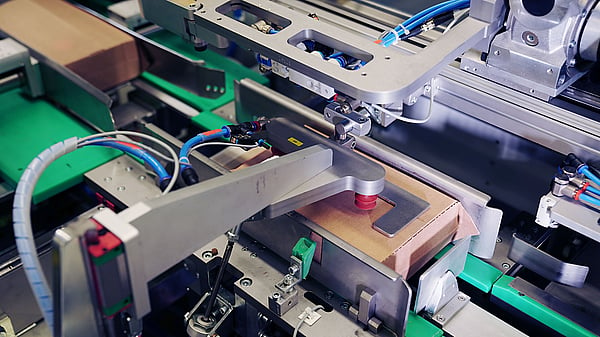The Future of eCommerce: How automation benefits online retailers, marketplaces and the planet

The eCommerce industry faces a range of fulfilment challenges that businesses will increasingly need to address going forward. From inefficiencies in the packaging process and tightening sustainability requirements, to pressure on warehouse space and availability of trained teams, automated solutions can help to overcome these obstacles.
Automation technology has been central to the transformation of the eCommerce market, and as demand continues to grow (Morgan Stanley), it has unlocked new opportunities that are shaping the industry’s future.
It’s no wonder that, according to McKinsey, four out of five retailers have plans to increase investments in automation over the next three years. Indeed, the warehouse automation market is set to reach $51 billion by 2030, a sign of the efficiencies that businesses have in their sight. (McKinsey and Company).
Bridging workforce gaps in eCommerce
For sites and companies still taking a hands-on fulfilment approach, more boxes and bags mean more hands. So, with the eCommerce growth comes an even bigger demand for human labour which sparks the question of how to bridge workforce gaps in the industry.
Automation offers a practical and efficient solution to this challenge, reducing inefficiencies in manual processes while complementing the skills of human teams, streamlining repetitive and time-consuming tasks, and increasing productivity, capacity and efficiency.
Producing less waste in even smaller spaces
Traditional online retail operations need large physical spaces, requiring substantial energy consumption and generating significant carbon emissions. Automated warehouses and fulfilment centres, on the other hand, can optimise space utilisation, reducing the need for extensive infrastructure.
And not only can automated technologies help create the right-sized packaging to improve product protection while reducing packaging waste, but they can also optimise freight densities and support improved logistical efficiency, shipping costs and related carbon emissions per unit shipped.
Quality paper that meets your needs
The role of quality sustainably produced packaging and paper is essential in taking steps towards more automated operations. Paper and cardboard that are strong, lightweight, flexible and fit for the right packaging task are crucial elements of the success of an automated line – both as sustainable materials but also as materials protecting the products they hold.
Take, for example, Mondi’s eCommerce suitable paper for automation. The paper-based material is stronger, enabling it to carry heavier items without breakage. It is responsibly sourced, made of renewable materials and recyclable in existing European recycling streams.
One new automation solution pioneered at Mondi is the eComPack, a high-speed automated packaging machine for fulfilment centres. The eComPack has automated Mondi’s EnvelopeMailer, a unique construction that can be shipped flat or in a box shape. The combination allows eCommerce fulfilment centres to optimise operations and double output per hour in many cases.
For Mondi, the key in each case is working directly with our eCommerce partners to develop innovative, automated, integrated solutions that are sustainable by design – whether paper, machinery, or both, working in harmony
Key take aways at one glance:
- A solution to eCommerce challenges: The rapid growth of eCommerce comes with its own set of challenges, including packaging inefficiencies, sustainability requirements, limited warehouse space, and shortages in manual labour. Automation can provide businesses with practical solutions, with proven cost reduction, efficiency improvements, scalability and improved inventory management.
- Automation and the future workforce: With the eCommerce boom comes an even bigger demand for skilled teams. Automated solutions reduce inefficiencies and streamline time-consuming tasks, maximising fulfilment operations without the need for growth in human resources.
- Sustainable benefits: Automation contributes to environmental sustainability by minimising waste, optimising freight densities, and improving product protection. And that doesn’t just help fulfil customer orders quicker, it also meets their increasing expectations that the businesses they order from are reducing their ecological footprint too.

More on eCommerce packaging
Discover our innovative and fit-for-purpose eCommerce packaging products that are sustainable by design.







